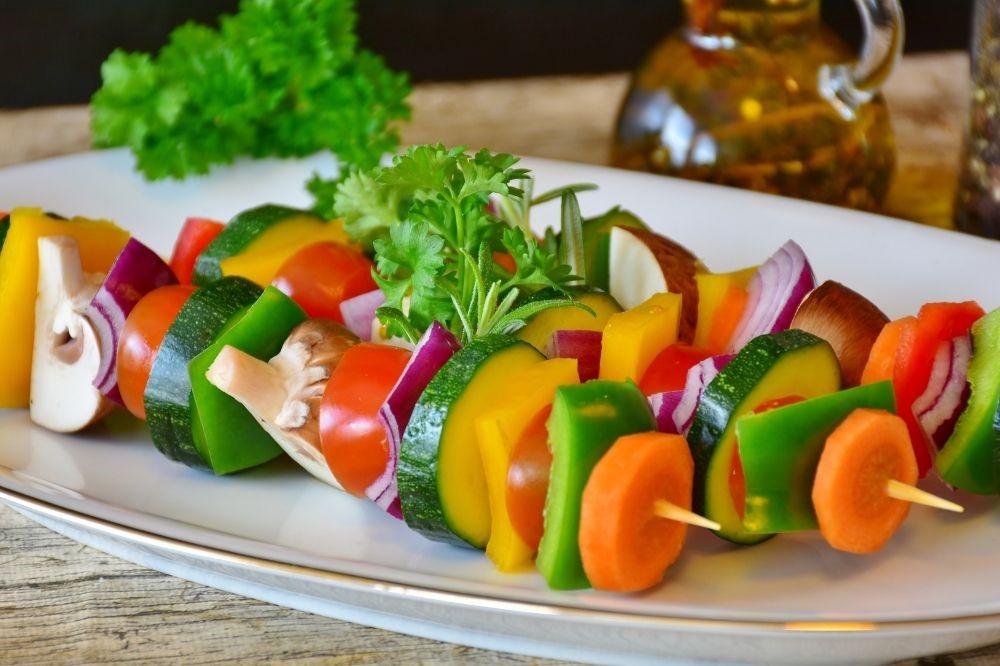To help reduce our carbon footprint we need to buy less meat and diary - but also eat more locally sourced seasonal food, and throw less of it away. Here are some top tips to help you make these changes, one step at a time.
Eat well, reduce your carbon footprint, and save money
Tip 1. Eat less meat and dairy
When it comes to our diets, the IPCC (Intergovernmental Panel on Climate Change) says we need to buy less meat, milk, cheese and butter - but also eat more locally sourced seasonal food, and throw less of it away.
You might be surprised to discover that farming animals is one of the biggest contributors to climate change.
Meat and dairy production causes 14.5% of planet-warming gases.
https://friendsoftheearth.uk/sustainable-living/what-better-meat
Producing meat industrially uses more carbon per calorie than producing grains and vegetables, and cutting meat and dairy products from your diet could reduce an individual's carbon footprint from food by two-thirds, according to an Oxford study published in the journal Science.
- Eat less (and better) meat, particularly red meat (lamb and beef) and less dairy. You don’t have to go totally plant based, replacing one or two meat-based meals a week with a vegetarian option will significantly reduce your carbon over the course of a whole year.
Find out more why plant based diets are good for you and for the planet.
Tip 2: Keep it local and seasonal
- Eating more locally produced season food means less imported food and less air miles. It might also mean you can try some new interesting food AND you will be supporting local businesses.
Find out how to Buy Local in the Horsham District
- What's your diet's carbon footprint?Find out what your diet carbon footprint is in the BBC's Climate change food calculator: https://www.bbc.co.uk/news/science-environment-46459714
Tip 3. Grow your own
- Grow your own fruit and veg. There are many local groups in the Horsham District who can give advice and encouragement. Some, such as Transition Horsham, also organise seed swaps - so whilst you benefit form fresh home grown food you can also feel virtuous for helping to protect the planet as your plants absorb carbon dioxide.
- Advantages of growing your own can also have benefits for wildlife if you include:
- Planting some bee-friendly flowers and help to protect some important wildlife
- Protecting an important habitat by only using peat free compost! There are some very good alternatives
- Add a wildflower section and or pond to your garden to encourage wildlife into it and consider leaving some areas of grass to grow long.
Tip 4. Reduce your food miles
Individual actions can have a huge collective impact on carbon emissions. Here are three ideas to potentially cut the carbon footprint of your food shop:
- Shop local: Consider buying some of your food from local producers. It's a good way to Buy Local and reduce the carbon footprint of your produce.
- Grow your own: It's always a good time to think about growing your own produce. Check out the RHS simple guide to growing your own
- Buy seasonal: Buying food when it's in season in the UK is a great way to reduce food miles and could also save you money. Check out this guide to seasonal fruit and vegetables from the Vegetarian Society.
Tip 5. Let's Get Composting
- Home composting is the most environmentally-friendly way of dealing with unwanted kitchen and garden waste, plus it produces compost that can be used as an excellent soil improver when growing your own food.
- Composting is useful in all gardens. Only in the very smallest gardens will it be difficult to find space for a compost heap and material to fill it. Owners of such small plots could consider worm composting instead. The RHS is a great place to start thinking about composting.
DID YOU KNOW?
HOT BINS: Here at Horsham District Council we are trialling a Hot Bin with some of our residents to help transform unwanted food waste into rich compost. We've given seven Horsham District families a Hot Bin and a food waste caddy each for the kitchen. The families will weigh the food waste they put into the Hot Bin and provide feedback each month. Find out how they got on
Find out more
FOOD WASTE
Reducing our food waste is a critical factor in mitigating the causes of climate change: It reduces methane emissions which is a 30% more powerful greenhouse gas than carbon dioxide; it conserves energy and resources and, as an extra bonus for you, it saves you money and supports the community.
Food Waste Collection Trials across the Horsham District
We are currently working with other West Sussex councils to develop a strategy for dealing with food waste. As part of this we are conducting a three month food waste collection trial for 100 households from October - December 2021.
Find out more about our Food Waste Collection trial
OLIO
Olio redistributes edible waste food from businesses and households, and offers them to you for free or a fraction of the original price. This prevents buying more food and waste!
Download the app: https://olioex.com/
Transition Horsham
http://www.transitionhorsham.org.uk/
Allotments in the Horsham District
https://www.horsham.gov.uk/parks-and-countryside/allotments.
Community gardening: Find a local gardening group
https://www.rhs.org.uk/get-involved/find-a-group

